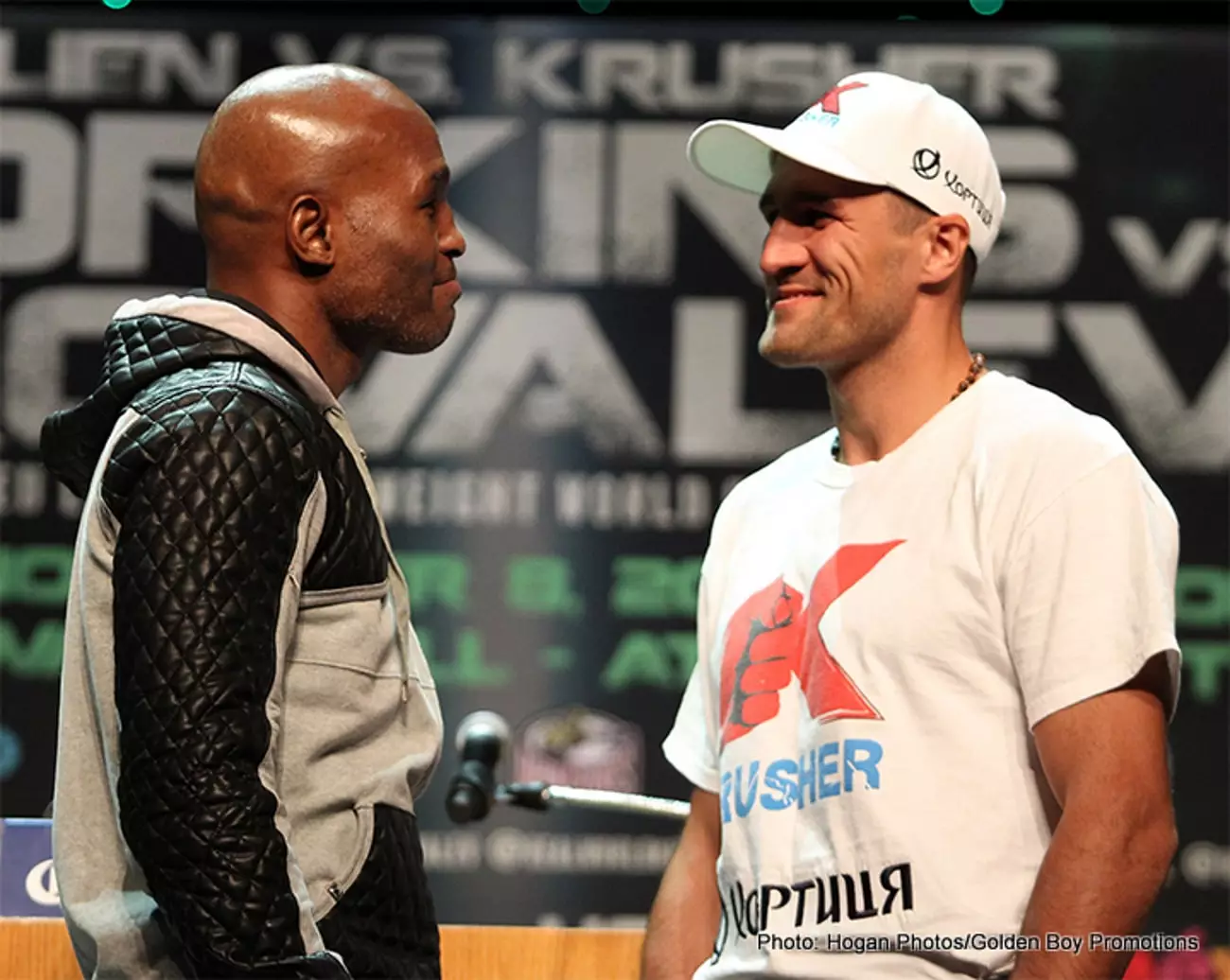A decade has passed since the momentous clash between Bernard Hopkins and Sergey Kovalev—a fight that epitomized the ever-present tension between seasoned experience and youthful vigor in boxing. As Hopkins entered the ring at 49 years old, he was not merely a veteran fighter but a symbol of resilience and determination. Holding two major titles in the light-heavyweight division, he faced the formidable challenge of battling Kovalev, known as “The Krusher.” At 31, Kovalev was unbeaten and had a fearsome reputation, boasting ten consecutive knockouts leading up to their encounter. This match, branded as “Alien Vs. Krusher,” was not merely a title bout; it represented an existential test for Hopkins, whose extraordinary career was beginning to flirt uncomfortably with the boundaries of time.
Despite the glaring age difference, there was a complicated respect for Hopkins. He had defied expectations throughout his career, defeating younger opponents in a way that often made the improbable seem possible. Still, as the promotional buildup heightened anticipation, fans were divided between hope and fear—could the aging great fend off the merciless advance of Father Time for one last bout?
On fight night, the atmosphere was electric yet tinged with apprehension. The reality of the encounter unfolded within the confines of Boardwalk Hall in Atlantic City and swung heavily in favor of Kovalev. The bout began dramatically, with Kovalev scoring an early knockdown in the first round—a statement of his striking power that left many viewers in stunned silence. From that point forward, the fight transformed into an exercise in survival for Hopkins.
Employing a highly cautious strategy, Hopkins retreated into a defensive shell, limiting his offensive output while relying on his ring IQ to evade devastation. As each round ticked by, Kovalev’s imposing presence and relentless pressure became undeniable. The scores at the end of the match—120-106 and 120-107—painted a bleak picture for Hopkins. Although he managed to stay on his feet, it became painfully clear that his lifeline was stress-testing his strategy in ways that his younger counterparts had not.
In the wake of this one-sided bout, the boxing world had to recalibrate its perception of Hopkins. The match served as a humbling reality check, stripping away the myth and reaffirming the truth: that even the most formidable warriors eventually face their limitations. Hopkins’s decision to fight Kovalev, a choice that echoed with ambition but also hubris, stood out as a crucial pivot in his career narrative. He could have chosen to retire on a high note, having already amassed an impressive record and lots of accolades. Instead, he chose to continue pushing against the tide.
Though the outcome against Kovalev marked a definitive decline, it was far from the end. In a remarkable twist, just over two years later, Hopkins returned to the ring against Joe Smith Jr., where he faced a fate reminiscent of his encounter with Kovalev. The fight ended with Smith Jr. dispatching Hopkins—a humbling moment against the ropes that served as a final curtain for “The Alien.”
While Kovalev would continue to build his own legacy—fighting both in victory and loss—Hopkins remained a significant figure in boxing history, revered not only for his skill but also for his resilience. His story became one of both triumph and caution, illustrating that greatness does not always come with an unblemished career. The duality of continued ambition at an advanced age highlighted the complicated relationship athletes have with their own careers—a push against limitations coupled with an inevitable confrontation with reality.
As we reflect on this chapter in boxing history ten years later, it becomes evident that while the spirit of competition remains timeless, the body is a finite vessel. Hopkins and Kovalev’s fight serves as a cautionary tale and a celebration of endurance in the sport, reminding us of the clock that always ticks away, even for the greatest champions.


Leave a Reply